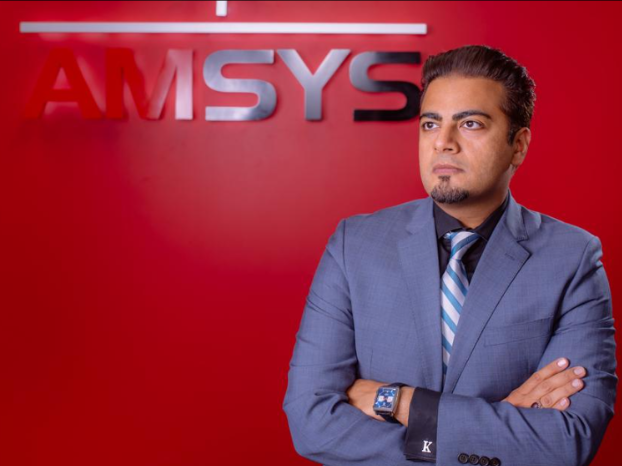
In an age where scaling a business often seems to come at the cost of ethics, Khalid Parekh stands out as a compelling exception. As the founder of AMSYS, Parekh has successfully merged profitability with purpose. His approach to entrepreneurship goes beyond the bottom line. It’s rooted in transparency, community impact, and ethical innovation. His journey offers invaluable lessons for entrepreneurs and leaders aiming to grow their ventures without compromising their values.
The Entrepreneurial Journey of Khalid Parekh
Humble Beginnings and a Bold Vision
Khalid Parekh’s story is the embodiment of the American Dream. Immigrating to the United States from India with limited resources, he started off in blue-collar roles. What distinguished Parekh early on was his vision. He didn’t just want to start a business; he wanted to solve real problems while improving people’s lives. This clarity of purpose would go on to shape the core of all his ventures.
After spending years gaining practical experience and building financial stability, Parekh launched AMSYS, a global IT and consulting firm. His emphasis on human capital, integrity, and customer service helped the company gain traction in a competitive market. But he didn’t stop there.
Embedding Ethics Into the Core of Business
People Over Profits
One of the most consistent themes across Khalid Parekh’s ventures is a relentless focus on people. In hiring practices, customer service protocols, and partnership strategies, his philosophy emphasizes trust and respect. His business model consistently prioritizes ethical considerations, inclusivity, and long-term relationships over quick wins.
This approach may not appeal to traditional investors solely focused on short-term gains, but it has cultivated long-term loyalty and brand integrity—two factors that contribute significantly to scalable success.
Transparency as a Competitive Advantage
Transparency is often used as a buzzword, but for Parekh, it’s a foundational principle. From clear communication with stakeholders to fair internal processes and honest branding, his businesses are designed to remove the confusion and distrust often associated with corporate dealings. Transparency isn’t just good ethics—it’s good business. It reduces customer churn, builds brand trust, and ensures long-term operational stability.
Lessons for Ethical Growth and Sustainable Scaling
Align Mission with Market Demand
One of the most important takeaways from Parekh’s success is the alignment of mission with real-world needs. Ethical intentions alone aren’t enough—they must meet a market demand. Parekh’s ventures are a testament to the increasing appetite for transparent, values-driven business practices.
Entrepreneurs looking to follow this model should identify where their ethical vision overlaps with genuine consumer needs. That’s where scalable, sustainable growth lies.
Build with Systems That Reinforce Your Values
A business’s values shouldn’t be limited to marketing slogans. They must be embedded in operations, from hiring and training to service delivery and performance evaluation. Parekh ensures his teams are educated on the company’s mission and empowered to live it out. Ethical business systems create consistency, even during periods of rapid growth.
Never Compromise Integrity for Expansion
Perhaps the most critical lesson is that scaling a business should never come at the expense of core values. While it may be tempting to make ethical concessions for the sake of growth, such compromises erode brand equity and long-term trust. Parekh has remained unwavering in his commitment to integrity, proving that it’s possible to grow quickly while staying true to your mission.
Conclusion
Khalid Parekh offers a powerful blueprint for building ethical businesses that scale. Through a combination of people-first leadership, transparent operations, and a deep commitment to social impact, he has demonstrated that business success and integrity are not mutually exclusive. His ventures are proof that when companies prioritize trust and service over shortcuts and greed, they build stronger foundations for growth.
For aspiring entrepreneurs and seasoned executives alike, the lesson is clear: ethics and scalability can go hand in hand. It requires discipline, vision, and a willingness to challenge the status quo—but as Parekh’s journey shows, the rewards are well worth the effort.
Most Commented Posts